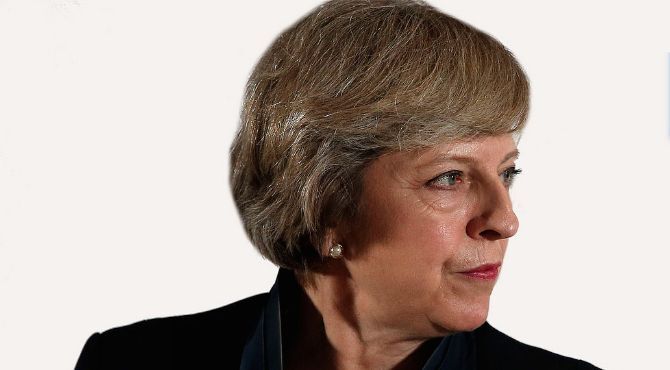Brexit uncertainty amid UK election result turmoil
Doubts have been raised over whether Brexit negotiations with the EU can begin on June 19, following the inconclusive result of the UK’s general election with the Conservative party losing their majority.

An expected alliance with Northern Ireland's DUP
Prime Minister Theresa May was expected to remain in post even though the 318 seats her Conservative Party won did not add up to a majority in the 650-seat House of Commons. However, an expected alliance with Northern Ireland's DUP, which won 10 seats, would be enough to give the Tories the parliamentary votes they need.Mrs May, who called the snap election less than two months ago when her party was enjoying a 20-point lead in opinion polls, did not get the commanding majority she had been expecting and, instead, lost 12 seats after an uninspiring and error-plagued campaign.Labour Party adds 29 MPs to parliament
Left-winger Jeremy Corbyn's Labour Party not only held on to seats it was expected to lose but added 29 MPs to end up with 261 seats. Scottish Nationalists were among the big losers, dropping 21 of the 56 seats they won two years ago and, according to analysts, putting back the prospects of another Scottish independence referendum indefinitely.Reaction from business
The unexpected outcome was greeted with barely concealed dismay by the nation's business leaders. Carolyn Fairbairn, director-general of the Confederation of British Industry (CBI), described it as “a serious moment for the UK economy”.She added, “The priority must be for politicians to get their house in order and form a functioning government, reassure the markets and protect our resilient economy.“Politicians must act responsibly, putting the interests of the country first and showing the world that the UK remains a safe destination for business. It’s time to put the economy back to the top of the agenda.“For the next government, the need and opportunity to deliver an open, competitive and fair post-Brexit economy that works for everyone across all our nations and regions has never been more important.“This can only be achieved if the next government doesn’t put the brakes on business, remains open to the world and sets out a pro-enterprise vision.”Further uncertainty for business communities
Dr Adam Marshall, director-general of the British Chambers of Commerce (BCC), commented, “After two long years of elections, referenda and wider uncertainty, many businesses were doing their best to ignore the noise of politics – up until today. “The electorate's split decision generates further uncertainty for business communities, who are already grappling with currency fluctuations, rising costs, and the potential impacts of Brexit. “The formation of a workable administration that can give voters and businesses confidence around economic management must be the immediate priority.”On the timetable for Brexit negotiations, Dr Marshall said, “No business would walk into a negotiation without clear objectives, an agreed starting position, and a strong negotiating team. It is hard to see how Brexit negotiations could begin without answers on these important questions.”Related news:
- Business leaders worried over fall in UK migration
- EU funding is 'essential' to academic research in UK
- Brexit is a reality – will it bring a new era for global mobility?
Terry Scuoler, chief executive of the manufacturers' organisation EEF, said that UK business had become used to political uncertainty in recent years and that “industry’s ability to stay calm and help keep the British economy moving in the right direction will be critical in the unpredictable days ahead”.He said, “While politicians work out a solution to the leadership of the country, they must put industry first and ensure business receives as much support and backing as possible.“The Brexit negotiating strategy requires a careful rethink. Industry should be at the table, alongside whatever administration is formed, to help ensure we have the right negotiating position, which is something that's been sadly lacking until now.”
A delay in Brexit negotiations?
Michel Barnier, Brussels' chief Brexit negotiator, opened the possibility of a delay in the start of Brexit talks until the political situation in Britain calmed down. “Brexit negotiations should start when UK is ready; timetable and EU positions are clear. Let's put our minds together on striking a deal,” he tweeted.However, Donald Tusk, president of the European Council, warned that the UK might end up with no deal on trade and withdrawal arrangements if it did not open negotiations in time. “We don't know when Brexit talks start. We know when they must end,” he said. “Do your best to avoid a 'no deal' as result of 'no negotiations'.”And the European Parliament's Brexit co-ordinator, Guy Verhofstadt, said the election result had made “already complex negotiations even more complicated”.For related news and features, visit our Brexit section.Access hundreds of global services and suppliers in our Online Directory
 Get access to our free Global Mobility Toolkit
Get access to our free Global Mobility Toolkit 
©2025 Re:locate magazine, published by Profile Locations, Spray Hill, Hastings Road, Lamberhurst, Kent TN3 8JB. All rights reserved. This publication (or any part thereof) may not be reproduced in any form without the prior written permission of Profile Locations. Profile Locations accepts no liability for the accuracy of the contents or any opinions expressed herein.









































